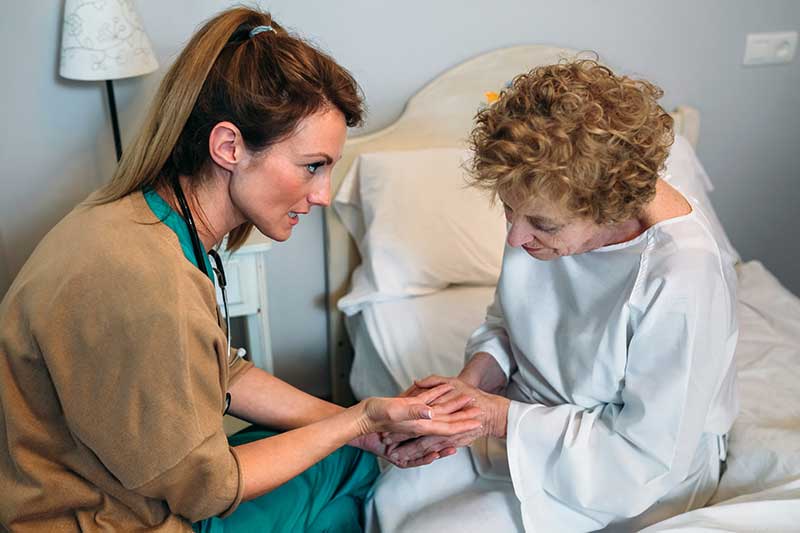Beyond medical therapies and pain control measures, there is a key but sometimes underappreciated component of healing in hospice care: emotional support. This pillar of hospice care is vital, reaching beyond the physical sphere to touch the souls of patients going on their final journey. “Beyond Medicine: Emotional Support as a Pillar of Hospice Care” dives into the significant influence of emotional care on patients and their families, emphasizing how genuine compassion and understanding can brighten up the darkest of times.
The Healing Power of Presence
The simple act of being present brings enormous healing. Healthcare personnel and volunteers in hospice settings frequently provide a calm, calming presence by lending a hand to grasp and an empathetic ear. This presence reassures patients and their families, reminding them that they are not alone on their journey. The act of simply being present, attentive, and responsive creates an environment in which emotional healing can begin gradually.
The Art Of Listening
Listening, a seemingly simple act, is a skill that is at the heart of emotional support in hospice care. It’s about hearing unspoken words, interpreting sighs, and recognizing unshed tears. Hospice care providers excel at this technique, creating a safe environment in which patients and families can express their worries, reminisce about the past, and share their hopes and ambitions for the days ahead.
Navigating the Emotional Landscape
The emotional landscape for hospice patients is complicated and ever-changing. Fear, rage, despair, and, on occasion, acceptance all coexist in a delicate tango. Trained counselors and therapists that specialize in end-of-life care are skilled at negotiating this terrain. They provide coping skills, therapeutic conversations, and activities to assist patients and their family process their emotions in a positive and healing way.
Promoting Connection and Dignity
In hospice care, keeping a patient’s dignity and sense of self is critical. Emotional support entails acknowledging each patient’s uniqueness, valuing their life narrative, and respecting their decisions and wishes. It is about fostering relationships—between the sick and their loved ones, between the patient and their caregivers, and between the individual and their sense of self.
Supporting the Supporters
Hospice care also provides emotional support to caregivers and family members, recognizing the enormous emotional toll that comes with caring for a loved one nearing the end of life. Support groups, counseling, and respite care programs provide a safe refuge for caregivers to recharge, share their stories, and learn how to manage their own emotional journeys.
In the tapestry of hospice care, emotional support displays the human spirit’s strength. It goes beyond the scope of medicine, delving deep into the heart to provide comfort, understanding, and connection. In the sacred corridors of hospice care, emotional support is more than a pillar; it is a beacon of light, guiding patients and their families through the twilight and reminding us all that love, compassion, and decency can live even in the final moments of life.













